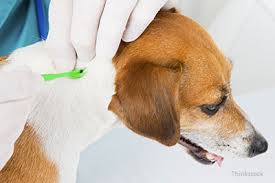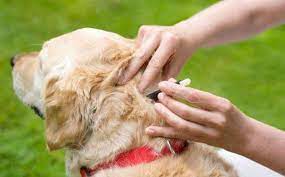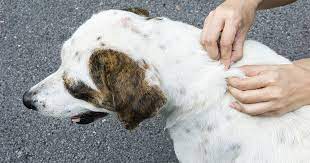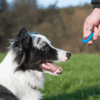Understanding the Importance of Deworming for Dogs
As responsible dog owners, we understand the importance of keeping our furry friends healthy and happy. One aspect of their well-being that shouldn’t be overlooked is deworming. Dogs are susceptible to various parasites, both internal and external, that can cause discomfort and even serious health issues if left untreated. Deworming plays a crucial role in preventing and eliminating these parasites, allowing our dogs to live their best lives.
When it comes to deworming, it’s essential to be proactive rather than reactive. Parasites can easily be transmitted to your dog through contact with contaminated soil, water, or infected animals. Common types of internal parasites in dogs include roundworms, hookworms, whipworms, and tapeworms. These parasites can cause symptoms such as diarrhea, weight loss, poor coat condition, and even anemia if left untreated.
The Drawbacks of Conventional Deworming Medications
Many dog owners turn to conventional deworming medications to combat parasites. While these medications can be effective, they often come with drawbacks. One of the main concerns is the potential for adverse side effects. Conventional dewormers typically contain chemicals that can be harsh on your dog’s system, leading to digestive upset, allergic reactions, or even organ damage in some cases.
Additionally, over time, parasites can develop resistance to these medications, rendering them less effective. This means that the parasites in your dog’s system may not be completely eliminated, allowing them to multiply and cause further harm. It’s crucial to explore alternative options that are not only effective but also safe for your furry companion.
Introduction to Natural Dewormers for Dogs
Natural dewormers for dogs offer a safer and more holistic approach to combating parasites. These products are made from natural ingredients that have been proven effective against a wide range of parasites. By harnessing the power of nature, we can provide our dogs with a gentle yet potent solution to keep them parasite-free.
Benefits of Using Natural Dewormers
Using natural dewormers for dogs comes with a host of benefits. Firstly, they are generally safer for your dog’s overall health. Natural ingredients are less likely to cause adverse side effects or harm to your dog’s organs. This is especially important for dogs with underlying health conditions or those who are more sensitive to conventional medications.
Furthermore, natural dewormers are often more environmentally friendly. Conventional medications can contain chemicals that are harmful to the environment when they are excreted in your dog’s waste. Natural dewormers, on the other hand, are typically biodegradable and pose less risk to the ecosystem.
Lastly, natural dewormers promote overall wellness for your dog. Many natural ingredients used in these products have additional health benefits, such as boosting the immune system or improving digestion. By using natural dewormers, you can support your dog’s overall well-being while keeping parasites at bay.
Natural Ingredients That Are Effective Against Parasites
Nature provides us with a wealth of powerful ingredients that can help eliminate parasites in dogs. Here are some natural ingredients known for their efficacy:
Garlic: Garlic contains compounds that are toxic to parasites. Adding a small amount of fresh, finely minced garlic to your dog’s meals can help deter parasites.
Pumpkin Seeds: Pumpkin seeds are a natural dewormer that contains an amino acid called cucurbitacin. This amino acid paralyzes parasites, making it easier for your dog’s body to eliminate them.
Wormwood: Wormwood is a potent herb that has been used for centuries to treat intestinal parasites. It contains compounds that can kill or inhibit the growth of parasites.
Diatomaceous Earth: Diatomaceous Earth is a fine powder made from fossilized algae. It acts as a natural abrasive, causing parasites to dehydrate and die.
These are just a few examples of the many natural ingredients that can be effective against parasites in dogs. It’s important to note that while these ingredients are generally safe, they should be used in moderation and under the guidance of a veterinarian.
Homemade Natural Deworming Recipes for Dogs
If you prefer a hands-on approach, you can create homemade natural deworming remedies for your dog. Here are a couple of recipes to get you started:
Garlic and Pumpkin Seed Blend:
Ingredients:
- 1 clove of garlic, finely minced
- 1 tablespoon of ground pumpkin seeds
- 1 teaspoon of coconut oil
Instructions:
- Mix all the ingredients together until well combined.
- Divide the mixture into small portions appropriate for your dog’s size.
- Add one portion to your dog’s meals daily for a week.
- Repeat the deworming process every three months.
Wormwood Tea:
Ingredients:
- 1 tablespoon of dried wormwood leaves
- 1 cup of boiling water
Instructions:
- Place the wormwood leaves in a heatproof container.
- Pour the boiling water over the leaves and let steep for 10 minutes.
- Strain the tea and allow it to cool.
- Administer the tea to your dog orally, using a syringe or dropper, following the recommended dosage based on your dog’s weight.
- Repeat the treatment every two weeks for a total of three cycles.
Remember to consult with your veterinarian before starting any homemade deworming remedies to ensure they are suitable for your dog’s specific needs.
Recommended Natural Deworming Products for Dogs
If you prefer the convenience of ready-made natural deworming products, there are several trusted brands available in the market. Here are some recommendations:
Honest Kitchen Perfect Form: This supplement contains natural ingredients like slippery elm, fennel, and papaya, which help soothe the digestive tract and promote intestinal health.
Only Natural Pet EasyDefense Herbal Squeeze-On: This topical treatment is made with a blend of essential oils such as cedarwood, peppermint, and geranium, which repel and kill fleas, ticks, and mosquitoes.
Pet Wellbeing GI CleanUp Gold: This herbal formula contains ingredients like wormwood, black walnut, and goldenseal, which help eliminate parasites and support the digestive system.
These products can be easily administered according to the manufacturer’s instructions and provide a convenient alternative to homemade remedies.
Precautions and Safety Guidelines When Using Natural Dewormers
While natural dewormers are generally safe, it’s important to follow some precautions and safety guidelines to ensure the well-being of your dog:
Always consult with a veterinarian before starting any deworming treatment, whether homemade or commercial. They can provide guidance based on your dog’s specific health needs.
Follow the recommended dosages and treatment schedules provided by the manufacturer or your veterinarian. Overdosing can be harmful to your dog, and underdosing may not effectively eliminate parasites.
Monitor your dog for any adverse reactions or changes in behavior during and after deworming. If you notice any unusual symptoms, discontinue the treatment and consult your veterinarian.
Keep your dog’s living environment clean and hygienic. Regularly clean bedding, toys, and living areas to prevent reinfestation.
Practice good hygiene yourself by regularly washing your hands after handling your dog or cleaning up their waste.
By following these precautions, you can ensure the safe and effective use of natural dewormers for your dog.
How to Create a Deworming Schedule Using Natural Methods
Creating a deworming schedule is crucial to maintain your dog’s parasite-free status. Here’s a general guideline to help you create a deworming schedule using natural methods:
Consult with your veterinarian to determine the appropriate frequency of deworming based on your dog’s lifestyle, age, and overall health.
Choose a natural deworming method that aligns with your preferences, whether it’s homemade remedies or commercial products.
Start the deworming process according to the recommended schedule. This typically involves multiple treatments spread out over several weeks or months to ensure all stages of parasites are eliminated.
Keep a record of each deworming treatment, including the date, method used, and any observations or reactions from your dog.
Regularly monitor your dog for signs of parasites, such as changes in appetite, weight loss, or the presence of worms in the stool. If you notice any concerning symptoms, consult your veterinarian for further guidance.
Remember that each dog is unique, and their deworming needs may vary. Your veterinarian can provide personalized advice to help you create an effective and tailored deworming schedule for your furry friend.
Consulting with a Veterinarian About Natural Deworming Options
While natural deworming methods can be effective, it’s always advisable to consult with a veterinarian before implementing any treatment plan. They can assess your dog’s overall health, perform necessary tests to determine the presence of parasites, and provide expert guidance on the best natural deworming options for your specific situation.
Your veterinarian can also help monitor your dog’s progress and make adjustments to the treatment plan if needed. By working together with a professional, you can ensure the optimal health and well-being of your dog.
Conclusion: Embracing Natural Deworming for a Healthier Dog
Deworming is an essential aspect of your dog’s healthcare routine. By embracing natural deworming methods, you can provide your furry friend with a safe and effective solution to combat parasites. Natural dewormers offer numerous benefits, from being gentler on your dog’s system to promoting overall wellness.
Whether you choose to create homemade remedies or opt for commercial products, always consult with a veterinarian to ensure the best course of action for your dog’s specific needs. By following a deworming schedule and practicing good hygiene and cleanliness, you can help keep your dog parasite-free and enjoy a healthier and happier life together.
CTA: Protect your dog’s health naturally. Consult with a veterinarian today to explore safe and effective natural deworming options for your furry companion. Say goodbye to parasites and embrace a healthier future for your four-legged friend.
FAQs: Natural Deworming for Dogs
Q: Are natural dewormers as effective as conventional medications?
A: Not always. Conventional dewormers prescribed by vets are highly effective against a broad spectrum of worms. Natural dewormers may be less potent and may not work for all types of worms or severe infestations.
Q: What are the safest natural dewormers for dogs?
A: Pumpkin seeds, carrots, coconut (unsweetened and unprocessed), and diluted apple cider vinegar are generally safe for most dogs in moderation. However, always consult your veterinarian before introducing anything new to your dog’s diet.
Q: How much of each natural dewormer can I give my dog?
A: The amount will depend on your dog’s size. The article provides general recommendations, but it’s crucial to consult your vet for specific dosing instructions.
Q: Can I use natural dewormers as a preventative measure?
A: Potentially. While some natural options may boost your dog’s immune system and create a less worm-friendly environment, they may not be a foolproof preventative. Regular vet checkups and deworming recommendations from your vet are still essential.
Q: What if my dog shows signs of worms after using natural dewormers?
A: If you see signs like weight loss, vomiting, diarrhea, or visible worms in your dog’s stool, even after using natural dewormers, consult your veterinarian immediately. They can diagnose the specific type of worm and recommend the most effective treatment plan.
Q: Are there any risks associated with natural dewormers?
A: Some natural options, like herbs mentioned in the article, can be toxic to dogs in large quantities. It’s important to stick to recommended amounts and consult your vet before using anything new.
Related Posts
Natural Dewormers for Dogs: Safe and Effective
March 15, 2024• Dog, Dog Health
How Do I Comfort My Dog After Neutering?
March 6, 2024• Dog, Dog Health
How to Remove Tick from Dog: Step-by-Step Guide
March 2, 2024• Dog, Dog Health
How to Get Rid of Fleas on Dogs Naturally: A Comprehensive Guide
March 2, 2024• Dog, Dog Health
How to remove the tick from a dog with alcohol?
February 28, 2024• Dog, Dog Health














